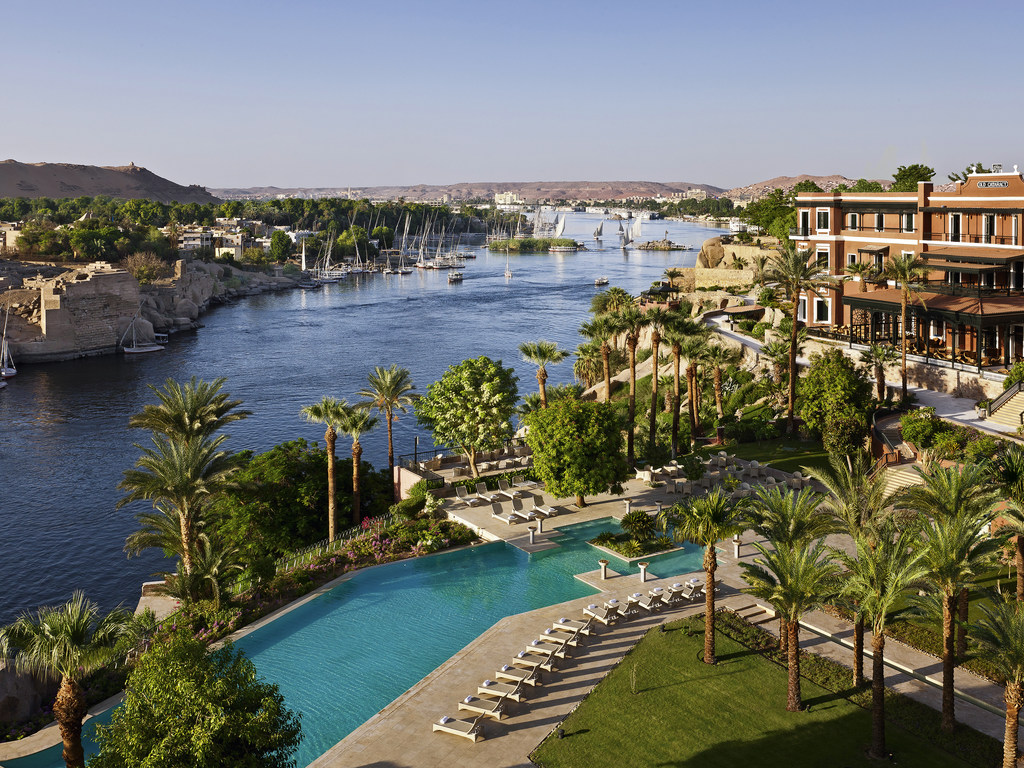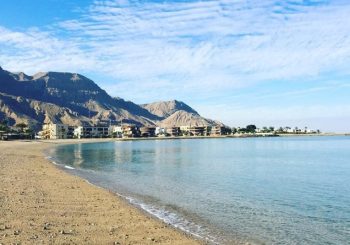When The White Lotus first debuted in 2021, no one could have predicted the cultural juggernaut it would become. From its biting satire and social commentary to its hauntingly beautiful settings, the HBO series has carved a unique space in the world of prestige television.
Each season, set in a different luxury resort, unravels stories of wealth, privilege and human frailty against the backdrop of paradise. Season one took us to Hawaii. Season two seduced us with the romance of Sicily. Season three, which premiered earlier this year and wrapped up this week, took place in Thailand. But as conversations swirl around the possibility of a fourth season, one question emerges: where next?
The answer is clear: Egypt.
From the golden sands of the Sahara to the blue waters of the Nile River, Egypt offers a breathtaking canvas for the next chapter of The White Lotus – a place where ancient myth collides with modern indulgence, where spiritual awakenings and existential crises feel right at home.
A Setting Like No Other
Egypt is a land of stark contrasts. In Cairo, luxury hotels rise alongside crumbling colonial-era buildings, and modern art galleries coexist with ancient mosques and churches. A short flight away, the serenity of Aswan, the opulence of Nile River cruises, or the otherworldly beauty of the White Desert offer an escape from the chaos – ideal for a fictional White Lotus resort.
Imagine guests sipping cocktails on a private boat as it drifts past the temples of Kom Ombo and Edfu, or lounging poolside at a Four Seasons resort in Cairo with breathtaking views of the Nile River and the Pyramids. The backdrop is exotic, layered and cinematic – fertile ground for creator Mike White to explore themes of culture clash, privilege tourism and post-colonial identity.
Egypt is also no stranger to murder mysteries. The country has long captured the imagination of storytellers, serving as the atmospheric backdrop for some of the most iconic whodunits in history. Agatha Christie famously set Death on the Nile amidst Egypt’s ancient ruins and luxury riverboats – stories that have since been adapted into lavish films dripping with suspense and opulence. Closer to home, the Egyptian series Secret of the Nile offers a homegrown take on the genre, blending intrigue, romance and class tension within the walls of a 1950s Aswan hotel.
Whether told through Western or Arab lenses, Egypt’s layered history and charged settings have proven irresistible for tales of secrets, scandals and murder.
Tourism and the Trouble With It
One of the recurring themes in The White Lotus is the impact of tourism on local communities – an issue Egypt knows all too well. Egypt’s economy is heavily reliant on tourism, which has fluctuated dramatically due to political instability, the pandemic and global economic trends. While tourists bask in curated luxury, locals often contend with the reality of economic disparity.
In this way, Egypt offers not just a gorgeous backdrop, but a rich narrative opportunity. What does it mean to “find yourself” in a country whose own narrative are sometimes shaped, romanticized and commodified for the consumption of outsiders? What tensions simmer beneath the curated experiences sold to affluent Westerners? And what happens when ancient spiritual symbols become Instagrammable photo ops?
Egypt’s complex social fabric also lends itself to the show’s signature ensemble storytelling. Picture this: an American tech mogul and his influencer wife seeking “authentic connection” on a Nile cruise; a bitter academic desperate to complete her book on the missing tomb of Cleopatra while fending off younger, hungrier scholars; a wealthy Egyptian expat returning home with his Western-born children; a mystic guide hired by the resort who becomes both spiritual mentor and object of suspicion.
Throw in a handful of resort staff navigating the whims of high-maintenance guests while quietly carrying their own burdens and you have got the makings of another brilliant season of television.
A Spiritual Undercurrent
Season three of The White Lotus leans into themes of death and spirituality. What better place to explore these themes and others than Egypt – a civilization that built entire cities and mythologies around the afterlife? From the Valley of the Kings to the Book of the Dead, Egypt has always been obsessed with what comes next. It is a place where death was once just the beginning – a belief that echoes eerily well with the psychological and philosophical musings that have come to define the series.
There is also a modern spiritual allure: Egypt has long been a magnet for those seeking transformation, be it through desert meditation retreats, visits to sacred sites or a dip in the healing waters of the Siwa Oasis.
An Opportunity for Representation
Setting The White Lotus in Egypt would also open the door to greater Arab representation in Western media – a space that sorely lacks depth, nuance and authenticity. With the right cast and advisors, the show could spotlight Egyptian actors, artists and voices without falling into the trap of exoticism. It could playfully and critically examine Western consumption of “the Orient” while giving audiences a taste of Egypt beyond the pyramids and clichés.
While destinations like Morocco, Mexico, Australia, and the French Riviera (which have been touted as possible locations for season four) each bring their own brand of beauty and intrigue, Egypt stands out as the most compelling choice for The White Lotus Season 4 – both visually and thematically. The French Riviera, with its polished glamour and old-money elegance, may be stunning, but it lacks the cultural friction and layered history that give the show its edge. Australia, while remote and vast, leans more toward wilderness than mystery and does not offer the same sense of ancient grandeur or spiritual weight that permeates every corner of Egypt.
Morocco shares some similarities with Egypt – bustling souks, ornate architecture and desert landscapes – but Egypt has a far more iconic and globally recognized cultural imprint. It is deeply embedded in the Western imagination, from Hollywood films to school history books. Its mythologies, pharaohs, and temples evoke a sense of awe and familiarity that Morocco, for all its charm, cannot quite match.
Mexico, meanwhile, has been explored extensively in recent television and cinema – often through the lens of narco-politics or beachside retreats. Egypt, by contrast, remains relatively underutilized in Western prestige TV, making it feel both fresh and exciting. And while Mexico and Morocco certainly wrestle with their own post-colonial legacies, Egypt’s unique position as both a cradle of civilization and a modern Arab nation grappling with identity, development and globalization adds a distinctive tension that aligns perfectly with The White Lotus’s thematic universe.
Above all, Egypt’s contradictions – between past and present, wealth and poverty, spirituality and spectacle- mirror the contradictions of the show’s characters. It offers not just a visually stunning setting, but a story-rich environment that challenges, provokes, and deepens the satire. It is not just a backdrop – it is a character in its own right.
Egypt is the Ultimate Choice
In many ways, Egypt is the ultimate White Lotus location: beautiful, mysterious, complicated and ancient. It is a place where the weight of history bears down on the frivolities of the present, where spiritual yearning rubs shoulders with luxury escapism and where nothing is ever quite what it seems.
Of course, the show would need to tread carefully. Egypt has too often been flattened into a backdrop of sand and mystery. But in the hands of thoughtful writers and local collaborators, this could be an opportunity to tell richer, more authentic stories – without resorting to caricature.
As HBO and Mike White consider the next destination, they would be wise to look toward the land of pharaohs and paradoxes. If The White Lotus is about the illusions we carry into paradise, then Egypt – with all its beauty, contradictions and haunting grandeur – might just be the most honest paradise of all.







Comments (0)